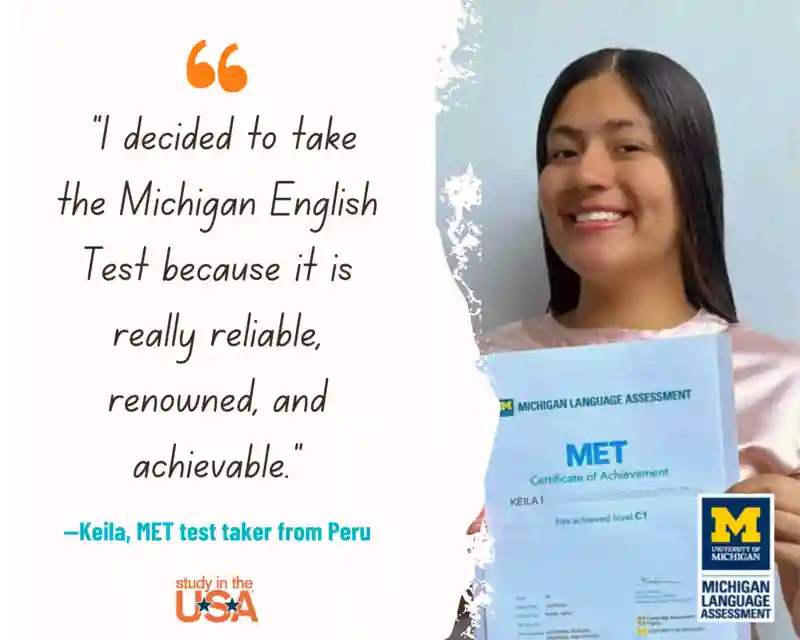What to Consider when Applying for Universities in the U.S.

Applying to universities and colleges after high school is probably one of the biggest decisions in a student’s life. It can cause both excitement and stress because it might not only define your academic future but your lifestyle for the next four years, this is especially true when applying for an undergraduate degree abroad.
It’s about academics, of course, but it’s also about the location and what that entails, your own hobbies, interests, and personal preferences. So, what should you consider when applying?
Academic Questions
These can be divided in two areas: when you are sure of what your major will be, and when you have a general idea of what you like but don’t really know what to choose.
Tip 1: If you have a major in mind, look at what the program looks like in different universities—“The Best” is not always the best for you.
You shouldn’t just think, “Oh, this is the best program, I will only apply here” because different programs have a different approach to the subject you want to study. When I was applying, I looked into a lot of creative writing programs, all of them different. Some of them focused on writing papers. Others were developed around peer-reviews and becoming confident in your writing through having your classmates read your work. Others, like the one I ended up choosing, were more reading-based. At the time that I was applying, I knew I wanted to write in English, but I also knew I was pretty ignorant of most English Literature so this sounded like it fit my goals.
But, what if you don’t know what you want to study?
Tip 2: If you’re not sure of your major, liberal arts education or universities where you can do pre-major classes, are the best way to go.
While I knew I was doing creative writing, I was also really interested in the theatre program, so I also chose Seattle University because I didn’t have to choose straight away. I even have friends that didn’t pick a major until their third year. How is this possible?
This is possible because a liberal arts education covers various areas: humanities, social sciences, natural sciences, and formal sciences. For my university, and this is common at most U.S. universities and colleges, this means there is a core selection of classes everyone has to choose from. If you are pre-major the only difference is you do all of your core classes first and then all your major requirements instead of spreading them out through the four years.
In general, this is also a great choice because, according to the U.S. Department of Education, about a third of students pursuing a bachelor’s degree change majors within three years of enrollment. So, if you are not sure, don’t worry. You’re definitely not the only one.
But, Where Do I Go?
Again, it’s not all about the program. You also have to think about how you’re going to live.
Tip 3: Do some research on your university’s location to have a general idea of what your life there would be like.
Do you get seasonal depression? How does this city or town treat outsiders? Is there a lot of discrimination against certain ethnicities or people of some sexual identities or orientations?
Asking some of my own friends about what they thought when applying to universities in Seattle, I realized that the city itself was a big reason for a lot of them. For some friends in the LGBTQ+ community, being in a city that is more known to be liberal was a reason. For others, Seattle was perfect for a city-life that is not as “extreme” as LA or New York.
Some came because it’s so green and it’s easy to find hiking spots. Others thought Seattle was ideal because they were trying to escape the dry California heat, and here it rains most of the year. Likewise, some friends I made my first year ended up transferring to other cities because they couldn’t stand the permanent rain or it made them more depressed.
Location, when applying, may seem like a superficial thing but your life is going to continue outside of the classroom. Moreover, where the university is located may be beneficial to what you want to study as well.
Tip 3.5: Do some research on your university’s location because that may relate or influence what you’re planning to study as well.
Seattle has a number of small publishers, it’s a good city for writers, but it’s also an amazing city for theatre. Sure, it’s not New York or Chicago, but Seattle is also on the list. We’ve seen a lot of theatre productions as assignments, and theatre students can easily volunteer, usher, or shadow people in different theatres because of the close connections that can be made in this city. Similarly, most Business majors chose Seattle because Microsoft and Amazon headquarters are near. Another friend who is a marine and conservation biology major chose Seattle because we are next to the ocean.
Thinking about location from this perspective is important because it will also help you see the kinds of job opportunities or internships you could take while you study in the U.S. or if you plan to do OPT. You can start networking as a student.
The city you choose will also influence the way you socialize.
Tip 4: If possible, look into the social aspect of the universities as well as the city. What are your hobbies? What can you do there for fun? What kind of fun are you looking for to balance with your studies?
Is there Greek life? When asking other international students about why they chose Seattle University, I was surprised to notice a number of them specifically mention that it was because it didn’t have a fraternities and sororities.
Universities have reputations, too. Some are more party-schools than others. And, while you should pay attention to your studies, I also have to say if that’s the kind of balance you’re looking for, looking into the school’s social scene is important. You may want to see what the city’s nightlife looks like, or what kinds of events are popular in your city.
Maybe it’s bars when you turn 21, or maybe it’s comic-con. Maybe you are extremely into the outdoors and you want a university with opportunities to go outdoors for recreation with a group. Maybe you won’t get used to the university if you’re not close to the beach. Maybe you hate cities. All of these details are also part of your experience. Remember, you’re leaving your country, a lot of you for the first time by yourselves so try to think ahead about what your heart might need too.
Finally,
Tip 5: If you are able to, actually visit the campus before you start—or try to get in touch with someone in it.
For a lot of us, coming from a different country this is not an easy possibility but I’ve noticed it’s a lot more common in domestic students for good reasons. Sometimes it’s just about how it feels.
If you are able to, try to stop by the campus. You might end up talking to some of the students and you can ask them their opinions yourself. In fact, even if you can’t visit, reach out to the university and ask them if they can put you in contact with a student. Sometimes, there are groups of students within the admissions offices or international offices that can help. Ask them what student life is like, and the kinds of resources the university offers that they appreciate the most.
I’m sure they would be more than happy to share their perspectives, so don’t be scared to reach out.
Wendy Tafur N.
Get matched to the best program for you
Let us know what you're looking for so we can find the best school for you.
Useful Articles
Check Out These Schools

Portland Community College
$10,000 — $15,000 Year


Hillsborough Community College
$10,000 — $15,000 Year

University of North Georgia
Typical cost per Year: $15,000—$20,000

Portland Community College
Typical cost per Year: $10,000 — $15,000

Glendale Community College
Typical cost per Year: $5,000—$10,000
Start your U.S. adventure with Study in the USA

Learn About U.S. education financing, housing, and more
Resources
Learn about American culture and education direct from our experts at Study in the USA. Read more












